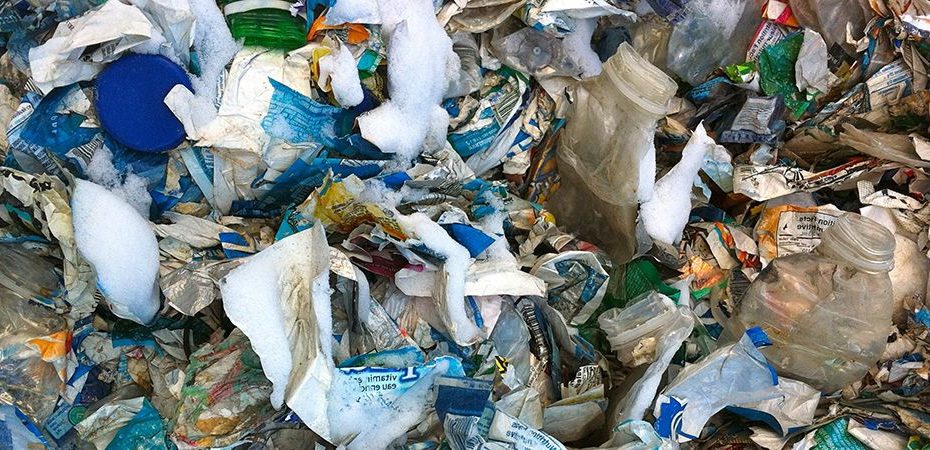In 2022, the worldwide production of plastics reached over 400 million metric tonnes, marking an increase of about 1.6 percent from the previous year. With mounting pressure to find a solution to our plastic addiction, the United Nations Environmental Assembly voted to create the Intergovernmental Negotiating Committee on Plastic Pollution (INC).
By the end of 2024, the INC seeks to develop a legally binding plastics treaty, meaning governments and corporations around the world will be held to the same standard of plastic waste reduction. The treaty also looks to address the full lifecycle of plastics and promote the design of reusable and recyclable plastic products.
Plastic waste © Joslyn LM CC BY 2.0
INC Negotiations Move to Ottawa
The fourth of five scheduled INC negotiations took place in Ottawa from April 23 – 29, 2024, where 60 countries continued to back measures to reduce plastic production. Key outcomes included a consensus on text regarding bans and product designs, and a mandate for the chair to produce a new, updated ‘zero draft’. Delegates also agreed to do intersessional work ahead of the final scheduled INC-5 session to advance other key sections of the treaty.
Not All in Favour
But the debate is far from one-sided. Nearly 200 lobbyists from chemical and fossil fuel industries registered for this session, marking a 37 percent increase in attendance from the INC-3 last November. Many lobbyists attended on behalf of corporations who have a vested interest in maintaining the status quo of limited regulations on plastic production. The Center for International Environmental Law (CEIC) warns the growing industry presence could undermine the success of the treaty.
Plastic shoreline litter in Toronto © Danielle Scott CC BY-SA 2.0
Several countries remain steadfast in their opposition to the treaty. Some are also adamant that decisions should be made by consensus, which could impede the progress of the treaty. Despite this, negotiations have continued with most parties being in favour of a majority vote system.
As it is no small feat, the INC has acknowledged the need for international collaboration when it comes to reducing plastic use on a global scale. Stakeholders such as the Indigenous Peoples Caucus and other rightsholders gathered at the session to share how they have been affected by the entire lifecycle of plastic. However, with the clock ticking to finalize major portions of the treaty, time for public comment was very limited.
Terrestrial plastic litter in Ontario © Laurel Russwurm CC BY 2.0
Reducing Single Use Plastics
Recently, the Canadian government finally stepped up to ban certain types of single use plastics. For instance, it’s now rare to find plastic utensils in takeout orders, and the days of plastic bags at the grocery check-out are all but forgotten.
And it’s not just plastic. As of September 2023, the LCBO began phasing out free paper bags, noting it would divert 2,665 tonnes of waste from landfills per year.
As part of the 2024 federal budget, Minister of Environment and Climate Change Steven Guilbeault announced $3.3 million in funding to support organizations developing solutions to address plastic waste in Canada. This is all part of Ottawa’s zero plastic waste agenda, with the goal of diverting at least 75 percent of plastic waste from federal operations by 2030.
The fifth and final INC session is set to take place from November 25 – December 1, 2024 in Busan, Republic of Korea. Readers can learn more about reducing their environmental footprint and plastic use at ontarionature.org/take-action/reduce-your-environmental-footprint/.
To take it a step further, you can participate in “Plastic Free July,” a global movement that encourages consumers to refuse single use plastics. Take the challenge and get your community involved by using the resources on this website.
Resources
The post Life in Plastic, Not So Fantastic: Plastics Treaty Negotiations in Ottawa appeared first on Ontario Nature.
